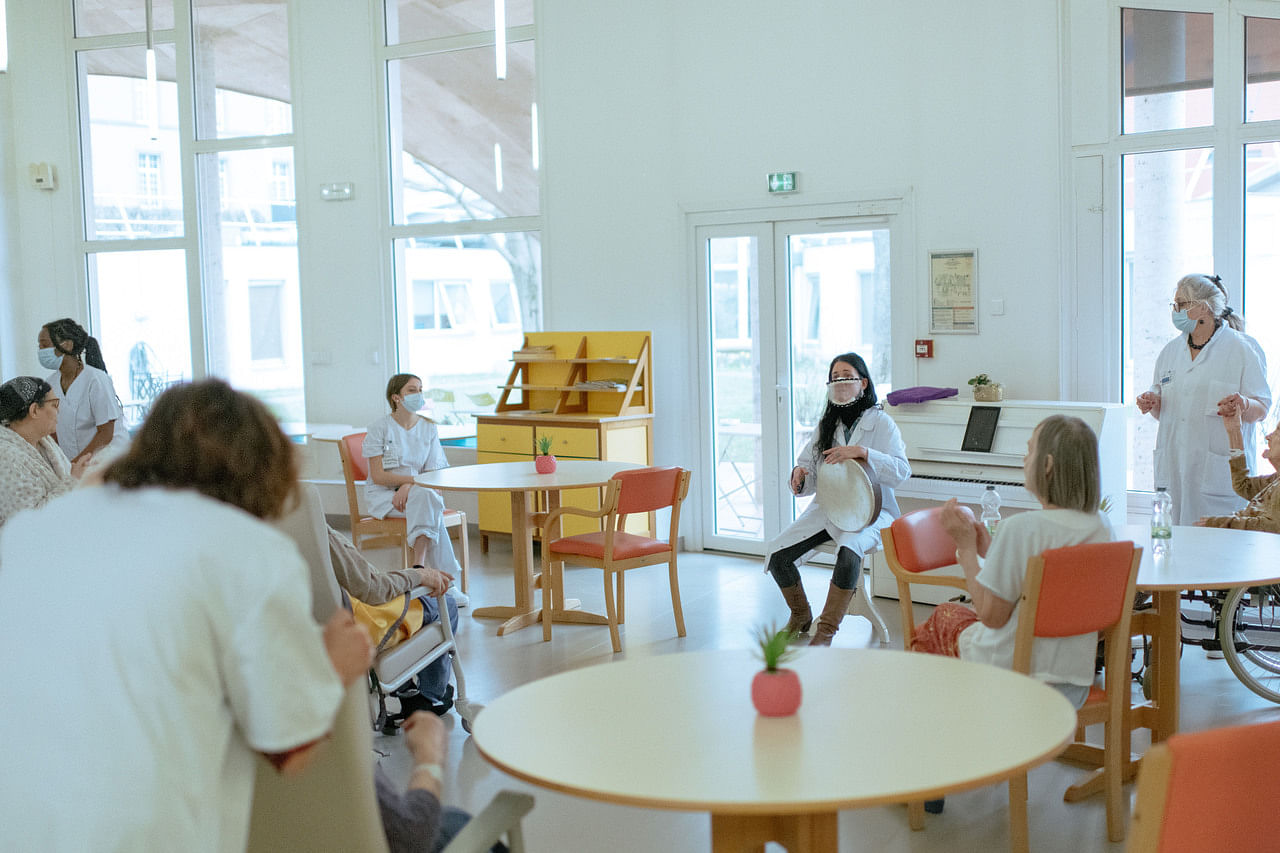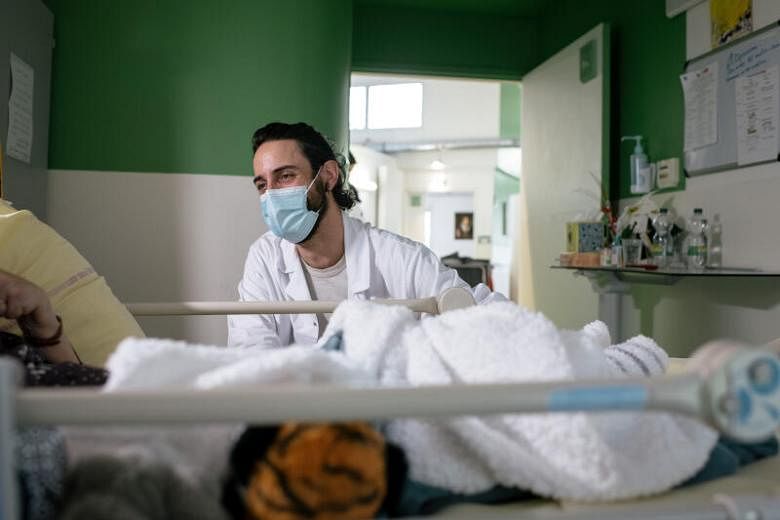PARIS (NYTIMES) - "I am calling you for a poetic consultation," said a warm voice on the telephone. "It all starts with a very simple question: How are you?"
Since March last year, almost 15,000 people around the world have received a call like this. These conversations with actors, who offer a one-on-one chat before reading a poem selected for the recipient, started as a lockdown initiative by a prominent Paris playhouse, the Theatre de la Ville, to keep its artists working while stages remained dark.
It is free - anyone can sign up for a time slot or make a gift of a call to someone. The exchange generally starts with simple questions about the recipient's life, then ranges in any direction. After 20 to 25 minutes, the actor introduces the poem.
As coronavirus restrictions in France stretch on, the programme has become such a hit that the Theatre de la Ville now offers consultations in 23 languages, including Farsi, its latest addition.
It has also been expanded to encompass different subjects and formats. Since December, the actors have held consultations at a hospital and at emergency shelters run by the city of Paris.
"Through the phone, it can be intimate because generally, you're isolated," comedienne Johanna White, a trilingual voice actor, said. She estimates that in the past year, she has talked to between 400 and 500 people, from places including Wisconsin, Los Angeles, Chile and Niger. A man based in Beirut told her about local riots in which he had lost half a hand; from Mexico, an 85-year-old woman shared her grief about being separated from her 92-year-old lover by pandemic-mandated rules.
Consultations involve a great deal of improvisation, White said, including choosing a poem for a person you have only just met. "Each of us has his or her own method," she added. "I file them by emotions, by feelings."
For the director of the Theatre de la Ville, Mr Emmanuel Demarcy-Mota, the idea of individual consultations with actors did not come out of the blue.
In 2002, when he was at the helm of the northern French theatre La Comedie in Reims, he initiated in-person sessions at a local bar. Passers-by could meet an artist and leave with a poetic "prescription" - a printed version of the poem that was read to them.
In February last year, he revived the concept at a Paris shopping mall, Italie Deux, where visitors could drop in for a chat between errands - then the pandemic struck. The Theatre de la Ville immediately pivoted to phone consultations. "We were ready," Mr Demarcy-Mota said in a telephone interview last month.
Other institutions have taken an interest in the programme's popularity. The Theatre de la Ville has partnered a handful of European playhouses, including the Teatro della Pergola in Florence and the Orkeny Theatre in Budapest, to expand its roster of actors.
Additionally, Mr Demarcy-Mota and his team are in the process of holding phone-training sessions with about 100 actors from nine African countries, including Benin and Mali, so theatres there can replicate the programme.
While remote sessions are the most virus-averse format, the Theatre de la Ville also brought back in-person consultations this winter in partnership with public institutions. The Charles-Foix hospital in Ivry-sur-Seine, a Paris suburb, was the first to allow performers to come for conversations with staff members and patients.
On a recent afternoon, actor Hugo Jasienski and singer-musician Dimitra Kontou went from room to room in a residential care building at the Charles-Foix for elderly patients, known as L'Orbe.

As on the phone, each encounter led to a poem or, in Kontou's case, a song. For some residents, especially those with dementia, the performances were adapted. Instead of asking questions, Kontou sang to them directly, in a transparent mask, so they could see her mouth.
Still, the music inspired interaction. At one point, a 97-year-old woman, Ms Simone Gouffe, almost rose from her wheelchair and started singing, her voice powerful despite her slight frame.
And while in some ways the consultations are more impromptu therapy than theatre, now has been the right time for artists to embrace social responsibility, Mr Demarcy-Mota said. "We need a new alliance between healthcare, theatre, culture and education. It's time to take care of one another."

